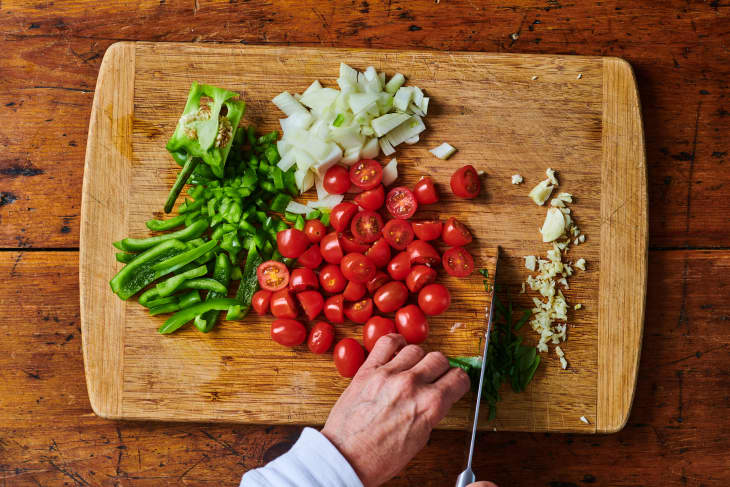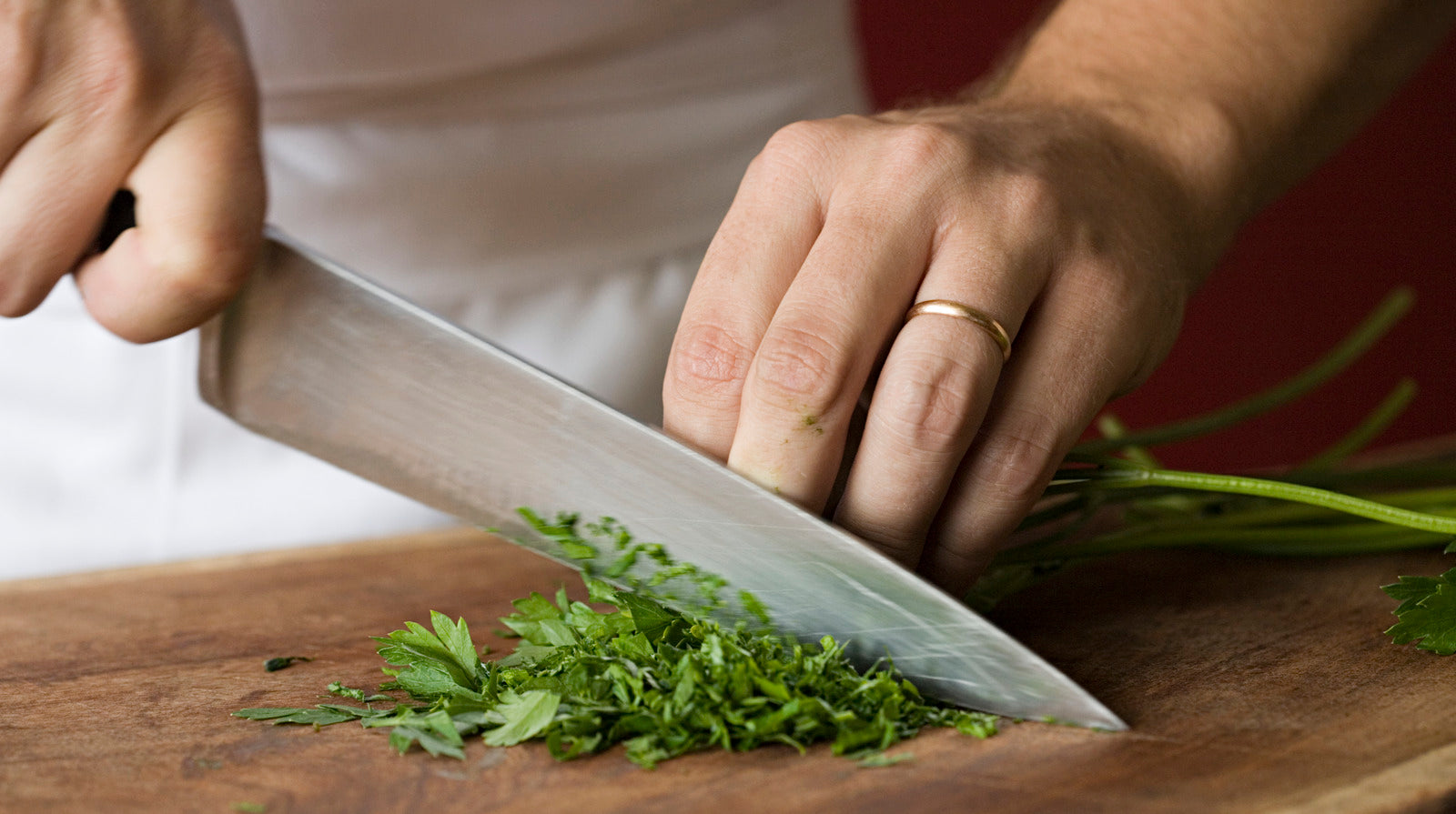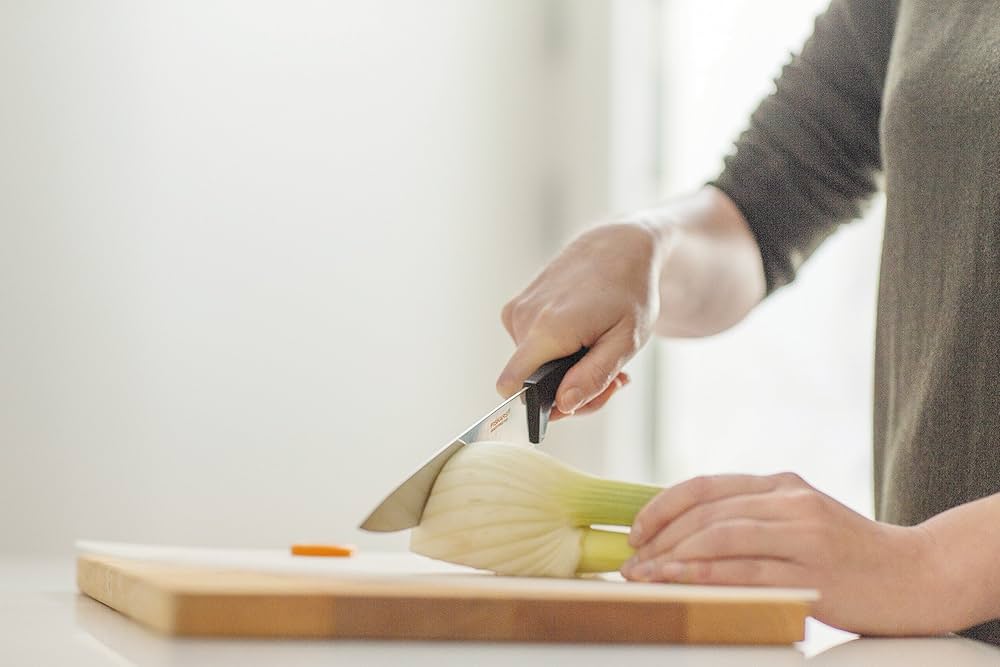For kitchen professionals, the persistent odor of onions on a cutting board can be one of the most challenging dilemmas in the kitchen. The strong, pungent smell of onions can linger on your boards, especially if theyre wooden. So, how to get onion smell out of cutting board effectively? Let's dive deep into all the methods that can rescue your cutting board from the onion aftermath.

Understanding Why Odors Stick to Cutting Boards
Before addressing how to remove onion odors, its crucial to understand why these smells can cling to your board. Wooden cutting boards, known for their fantastic durability, are porous. This means they absorb liquids and odors quicker than their plastic counterparts. Onions, with their strong sulfuric compounds, are particularly notorious for leaving behind this unrelenting scent.
On the other hand, plastic cutting boards can trap odors in cut marks, making it equally tricky to clean them thoroughly. For professionals who deal with onion-heavy recipes daily, an efficient cleaning routine is the key to maintaining a neutral-smelling board.
Simple Solutions to Remove Onion Smells from Your Cutting Board
1. Lemon and Salt Scrub
Lemon and salt make an excellent natural deodorizer combination. The citrus properties of lemon neutralize garlic and onion odors effortlessly. Heres how you can do this:
- Cut a lemon in half and sprinkle coarse salt on your cutting board.
- Scrub the surface with the cut lemon, squeezing out its juice as you go.
- Rinse with warm water and let the board air dry.
For more tips on maintaining cutting boards, read this article.
2. Baking Soda Paste
Baking soda is well known for its odor-absorbing abilities. Its particularly handy for wooden cutting boards. Follow these steps:
- Mix a tablespoon of baking soda with a small amount of water to create a paste.
- Rub the paste onto the board surface, focusing on heavily scented areas.
- Rinse thoroughly to eliminate all residue and odor.
Plastic board users can also rely on this method for eliminating persistent odors.
3. Vinegar Rinse
White vinegar is a powerful odor neutralizer. Its acidic nature breaks down the sulfuric compounds in onions rapidly. Heres how:
- Pour white vinegar directly onto the board or dilute it with water.
- Allow it to sit for around 5 minutes before rinsing it with warm water.
- Repeat for heavily scented boards.
4. Hydrogen Peroxide Method
Use hydrogen peroxide when other methods dont seem to fully remove the onion smell. Its safe for food prep surfaces and works wonders for deep-cleaning:
- Sprinkle a teaspoon of baking soda over the board first.
- Pour hydrogen peroxide over the baking soda and let the mix fizz for a few seconds.
- Rinse well and let the board dry.
Preventing Onion Odors in the First Place
Prevention is better than cure! To prevent onion smells from sticking to your board:
- Use separate cutting boards for onions, fish, and meats.
- Disinfect wooden boards regularly. Learn how in this blog.
- Season your wooden board with mineral oil to create a non-absorbent protective surface.

FAQs
1. Can I use bleach to clean onion smells?
While bleach is effective for killing bacteria, its not the safest option for wooden cutting boards as it can cause damage. Stick to natural alternatives like vinegar or lemon.
2. Do plastic boards retain onion smell more than wooden ones?
Both wooden and plastic boards can retain smells, but wooden boards absorb odors deeper due to their porous nature. Proper cleaning techniques are critical.
3. How often should I clean my cutting board?
Daily cleaning after every use is essential, especially when handling onions or raw foods. Deep-clean wooden boards weekly using natural deodorizing methods.
For more tips on food safety and cutting board maintenance, visit this guide.
In conclusion, addressing how to get onion smell out of cutting board requires both effective cleaning methods and preventive measures. By adopting these techniques, kitchen professionals can maintain pristine, odor-free surfaces in their kitchens.
This article contains affiliate links. We may earn a commission at no extra cost to you.






Leave a comment
This site is protected by hCaptcha and the hCaptcha Privacy Policy and Terms of Service apply.